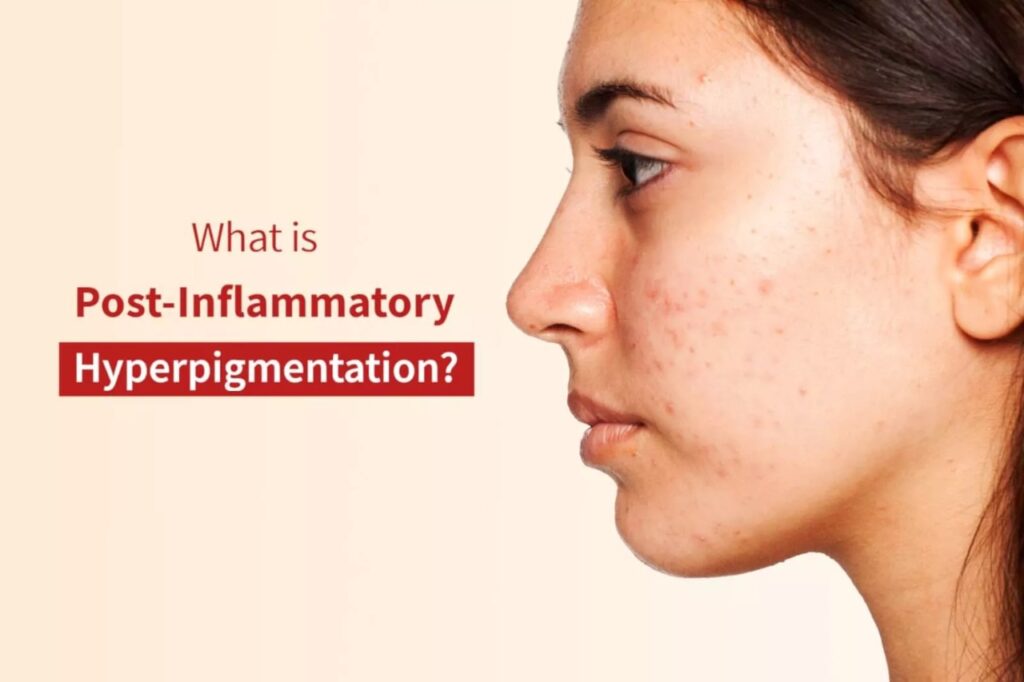Treatment Options for Hyper Pigmentation
What is hyperpigmentation?
The term “hyperpigmentation” refers simply to darker skin and is not a sickness or illness in and of itself. This may consist of very little dark spots or much larger ones. In most cases, increased pigmentation is not harmful, but it can point to a problem with one’s health. These darker spots of skin are set on by an overproduction of the pigment melanin. This may have occurred as a result of scarring from acne or UV damage, as well as fluctuations in hormone levels.
What causes hyperpigmentation?
An increase in melanin production is at the root of hyperpigmentation. Melanin is a naturally occurring pigment that is responsible for the coloration of our skin, hair, and eyes. Sun exposure, hormonal influences, age, and skin injuries or inflammation are the primary contributors to an increase in melanin production, although other factors, such as genetics, may also play a role. Hyperpigmentation is a direct consequence of an increased level of a hormone in your body, which leads to an enhanced rate of melanin synthesis. This condition is known as melasma.
What is difference between pigmentation and hyperpigmentation?
The difference between pigmentation and hyperpigmentation is not particularly significant. The coloring of the skin is referred to as pigmentation. The amount of pigment in your skin is what determines its hue or colour. The pigmentation in your skin is a specialized form of the pigment that gives your skin its color. Melanin is produced in your skin by a specialized kind of cell. It is unclear if a healthy or damaged state of these cells has an effect on the generation of melanin.
If your body produces an abnormally high amount of melanin, your skin will darken, and if your skin produces an abnormally low amount of melanin, your skin will lighten. It’s possible that you’ll have an increase or decrease in melanin production if you have a skin infection or another illness that affects your skin.
Is hyperpigmentation a symptom of something more serious?
Extra pigmentation in certain parts of the skin is typically not harmful, but it can occasionally be a sign of a significant medical issue. There is no set age at which hyperpigmentation first manifests itself, and it can occur on any skin type. When exposed to the sun for an extended period of time, black spots may eventually fade away on their own. In some situations, a less passive approach to treatment is warranted. Even with treatment, there is no assurance that the dark patches will disappear entirely in their whole.
How can I prevent hyperpigmentation?
According to the Dr. Praneeth’s Clinic, applying sunscreen with a sun protection factor (SPF) of at least 30–40, protecting one’s face and other exposed body parts from the sun by donning hats and gloves, and limiting one’s time spent in the sun during the hours when its rays are the most intense are all effective ways to prevent hyperpigmentation (10 am to 4 pm).
What are the treatment options for Hyperpigmentation?
The diagnosis and treatment are both completely predicated on the underlying condition of the ailment. A qualified medical professional dermatologist will work to treat the underlying problem that is contributing to the development of hyperpigmentation.
The following are some common ways of treatment:
- Laser treatment is essentially done to eradicate birthmarks, although the decision to do so lies solely with the individual.
- Anti-pigmentation cream consists of topical creams that have been shown effective by dermatologists in lowering excessive melanin formation.
- Peels with chemicals include exfoliating the damaged skin by applying a chemical solution to it and rubbing it in circular motions. A chemical peel eliminates dead skin and prepares the surface for the formation of new skin by clearing the way. Hydroquinone is a skin-lightening medication that is available only with a doctor’s prescription. Because it could potentially produce harmful effects, this medication must be used exactly as directed by a dermatologist at all times.
- Sunscreen with broad-spectrum protection is formulated to be effective against multiple wavelengths of UV radiation.
What type of precautions used after hyperpigmentation treatment?
Laser treatments are the most effective method for removing hyperpigmentation, but it will take some time before you notice the results of your treatment. After the treatment, the pigment will become darker for one to three weeks, and then it will begin to recede. You may notice redness, tenderness, and moderate swelling right after a laser session. These symptoms often disappear within a few hours. Many customers have commented that the feeling is evocative of what it’s like to have a sunburn. You might find that using a cold compress to the area helps it feel less painful and more bearable. It is essential that you do not scratch or massage the region in order to prevent any adverse effects and to allow the skin to recover in the correct manner
What are the side effects?
The most noticeable signs of hyperpigmentation are darkened patches that appear on the skin. The patch size can vary, and appears in any part on the body. Sun exposure and inflammation are two of the most significant risk factors for general hyperpigmentation. This is because both of these conditions can enhance melanin production. The likelihood of developing darker skin pigmentation is proportional to the amount of time spent in direct sunlight.
Any home remedies of hyperpigmentation?
There are certain natural treatments that may be done at home that are thought to be helpful for hyperpigmentation. Aloe vera, a mask made of turmeric and milk, raw potato and orange peel, and other similar concoctions are among the most effective treatments.
Some examples of foods that can help improve hyperpigmentation are:
- Vegetables with dark green leaves, such as kale, broccoli, and peas.
- Fruits like papaya and guava
- Salmon, crabs, and shrimp, along with other types of seafood
- Green tea
- Grapes Tomatoes and potatoes respectively

